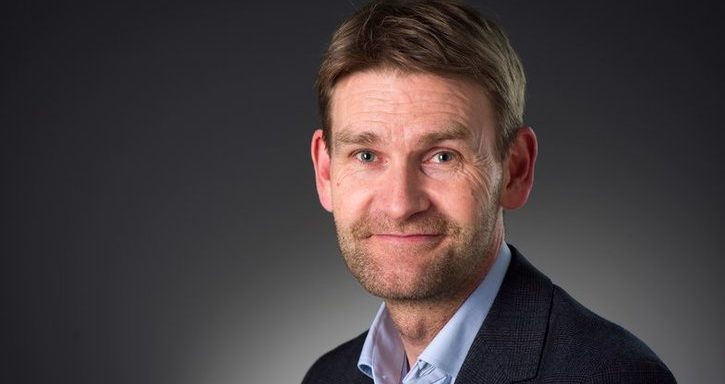K. G. Jebsen Centre for Neurodevelopmental Disorders

The K.G. Jebsen Center for Neurodevelopmental Disorders will address mechanisms of normative and aberrant brain development and translate findings to improve clinical practice for autism and other neurodevelopmental disorders.
Autism and intellectual disability are defined by abnormal development and represent a lifelong burden for patients and caregivers. The causes of neurodevelopmental disorders are largely unknown. Interventions are scarce and there are no tools for stratification or prediction of outcome.
The K.G. Jebsen Center for Neurodevelopmental Disorders studies the mechanisms behind the diagnoses by combining what we know about neurodevelopmental disorders with new knowledge about genetics and brain development. Furthermore, the center will study how other parts of the body are affected.
Today, there are few effective treatments for neurodevelopmental disorders, and it is difficult to predict the individual disease course. Due to the large variation in the clinical presentation and the lifelong duration of the disorders, we find this patient group in most of the hospital’s wards.
The K.G. Jebsen Center for Neurodevelopmental Disorders comprises a team of interdisciplinary researchers from different hospital divisions, researchers in molecular biology and neuroscience at the University of Oslo and big data population scientists at the Norwegian Institute of Public Health (NIPH). Together they aim to generate new knowledge that can be translated into new treatments of neurodevelopmental disorders.
The center is directed by Terje Nærland from the Division of Peadiatric and Adolescent Medicine at the Institute of Clinical Medicine at the University of Oslo and the National Advisory Unit on Rare Diagnoses at the Department of Children and Adolescents at Oslo University Hospital, in close collaboration with top researchers from the Norwegian Center for Mental Disorders Research (NORMENT).
Central to the project is a comprehensive survey of children’s development with special focus on how genetic and environmental conditions affect brain development.
The K. G. Jebsen Center for Neurodevelopmental Disorders will:
- identify genetic variants associated with traits relevant for neurodevelopmental disorders (population genetics)
- determine mechanisms of normative and aberrant brain development by multimodal imaging procedures, genetic analyses, immune profiling and cognitive assessments (deep phenotyping)
- discover more common and rare gene variants associated with neurodevelopmental disorders (clinical genetics)
- explore the variation in clinical presentations and organ manifestation in rare neurodevelopmental disorders and develop clinical tools for predicting disease progress. Clinical trails will be conducted, with a particular focus on identifying biological predictors for responders and non-responders, paving the way towards personalized approaches for patients with neurodevelopmental disorders (clinical translation)
Director, Researcher, Division of Paediatric and Adolescent Medicine, University of Oslo and the National Advisory Unit on Rare Disorders, Oslo University Hospital
Co-Director, Professor, NORMENT and Division of Mental Health and Addiction, University of Oslo and Oslo University Hospital
Professor, Department of Psychology, University of Oslo
Professor II, NORMENT, University of Oslo and Department of Medical Genetics, Oslo University Hospital
Researcher, University of Oslo
Researcher, University of Oslo
Professor, Psychosis Research Centre, University of Oslo
Professor, Psychosis Research Centre, University of Oslo
Mediaomtale
- Universitetet i OsloGener påvirker risikoen for autisme06.04.2021
- Universitetet i OsloInnlegg om autismeforskning på nettstedet Spectrum11.03.2021
- Universitetet i OsloDKNVS’ vitenskapelige pris til yngre forskere går til Daniel S. Quintana24.02.2021
- Oslo UniversitetssykehusNytt forskningssenter: K.G. Jebsen-senter for utviklingsforstyrrelser13.02.2020
- Universitetet i Oslo, Institutt for klinisk medisinAutismeforskning: Fra kalde mødre til gener og hjerneutvikling12.02.2020
- Universitetet i Oslo, Psykologisk InstituttPrestisjefylt medisinsk senter25.02.2020
- NRKIngen vet hvorfor Oliver Emil (7) har autisme – nå vil forskerne finne svar12.02.2020
- Universitetet i Oslo, ForskningsdageneHjerneforskning før og nå16.09.2020
- Universitetet i OsloUniversity of Oslo Awarded Kavli Trust for New Autism Treatment Trial12.11.2020
The centre in brief
Leader: Terje Nærland
Centre period: 2020 – 2026
Host institution: University of Oslo
Funding: 22,5 MNOK
Homepage, Twitter (X)
Contact information
K. G. Jebsen- Centre for Neurodevelopmental Disorders
Visiting address:
Oslo universitetssykehus, Ullevål
Kirkeveien 166
Bygg 31 A, 2. etasje
Postal address:
Oslo universitetssykehus ETC
Postboks 4956 Nydalen
0424 Oslo
